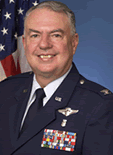
Radiological Events in a Community: High-Dose
Course Description:
The requirements for a vastly expanded supply of energy worldwide combined with nuclear proliferation and a more aggressive international posture for the development, deployment and potential use of nuclear weapons either for strategic or tactical purposes has created an environment for public health professionals in the 21st century thoroughly different than that which has ever existed in the course of human scientific and political evolution. In due course, recent energy initiatives fostering expansion of nuclear power production in the US as well as recent evolutions in international weapons development and their emerging strategic implications contribute to the conclusion that the ability of communities, regions, and states to react effectively to the challenges of high dose radiation exposure have become a necessary and inescapable element in the mandatory portfolio of capabilities of which today and tomorrow’s communities must dispose. This broadcast will address some of the principal challenges in doctrine, operational models, personnel, training and community preparedness which will become critical elements in Public Health Planning for the 21st Century. This course will address models of response, requirements for effective intervention, planning and preparation, personnel roles, training and command & control. Ideally this course provides the didactic introduction to a broader awareness of community needs and leads to workshops, drills and exercises in achieving community capability while reinforcing state and regional preparation for planning and support.
Target Audience
Academic Faculty/Staff, Federal Government Employees, State Government Employees, Local Government Employees, Non-Government Employees and Students
Learning Objectives
- Prepare community leaders to identify vulnerabilities and select suitable tools and strategies for effective consequence management in the presence of a high dose radiation event
- Enable Community public health personnel to examine the roles and skill levels for community workers/teams which effective intervention in a high dose event would require
- Address the risk communications needs, plans and actions necessary to facilitate a smooth transition of community members to the consequence management activities on which their welfare and survival depend in a high dose environment
- Provide the didactic introduction to workshops, drills and exercises in achieving community capability for a potential high dose event while reinforcing state and regional preparation for planning and support
Instructors:

Col. Joseph Contiguglia, MD, MPH&TM, USAF, MC, CFS
Dr. Joseph Contiguglia received an M.D. in medicine and surgery from the University of Siena, an MPH&TM from Tulane School of Public Health and Tropical Medicine and an MBA from St. Mary’s University. He holds clinical faculty appointments at the University of North Dakota, Texas Tech University Health Sciences Center and Tulane School of Public Health and Tropical Medicine.
Colonel Contiguglia retired from the USAF, effective 1 January 2007, as director of operational medicine and chairman of the Department of Military Medicine, Keesler Medical Center, Biloxi, MS. His military experiences include:
Surgeon general-appointed International Health Specialist
Director of the 2004/2005 LIFESAVER Exercises.
Surgeon 474 EOSS, Apiay, Colombia, supporting the Colombian Special Forces
Chief, Medical Operations, United States Air Forces in Europe
Surgeon, 3rd Air Force, responsible for medical operations in sub-saharan Africa
Deputy Command Surgeon, JTF Shining Hope supporting refugees in the Balkans
Headed NATO preparation team for Operation Allied Force in NW Turkey
Surgeon, Joint Task Force - Southwest Asia, Operation Desert Storm
Medical Commander, Operation Safe Haven, Republic of Panama,
Chief, Occupational Medicine and Environmental Health, RAAF
edical Program Director of the Tactical Air Warfare Center’s Chemical Weapons Defense and Operational Employment Exercises
Surgeon, OPERATION ELF-1, Saudi Arabia (Iran/Iraq War)
Medical Project Manager of the South East Asian Refugee Evacuation
Dr. Contiguglia is married and has three children.
Available Credit
- 4.00 Participation/CETulane Professional and Continuing Education (PaCE) awards 4.00 hour(s) of credit for completing Radiological Events in a Community: High-Dose
Price
Required Hardware/software
System Settings
This course is designed to work most effectively if your computer and internet connection meet certain minimal requirements. This course can be accessed using a Windows 10 PC or a Mac with High Sierra1, Mojave, or Catalina. Pop-up blockers should be disabled when viewing the course. Internet Explorer 11 (for Windows 10), or the current version of Google Chrome, Mozilla Firefox, or Apple Safari (for Windows 10 and or Mac) is required. Many of our courses require Java and JavaScript enabled.
Links to External Websites
Links to websites outside this course will open in a new window or tab. Some browsers may minimize the course window. If this occurs, maximize the course window to return to the course.
Adobe Acrobat Reader (for desktops and laptops)
Adobe Acrobat Reader is required to access some documents in this course. If you need to download a free copy of Acrobat Reader, click here.
Internet Connection Speed
A minimum download speed of 1.5 Mbps is recommended for an optimal experience, which is commonly the speed associated with a basic DSL or a cellular/satellite connection. A faster connection, such as cable or fiber service, with further enhance your online experience. A Wi-Fi connection is generally acceptable, but it is dependent upon one of the two services mentioned above. You can check your internet connection speed at http://www.speedtest.net/.

 Facebook
Facebook X
X LinkedIn
LinkedIn Forward
Forward